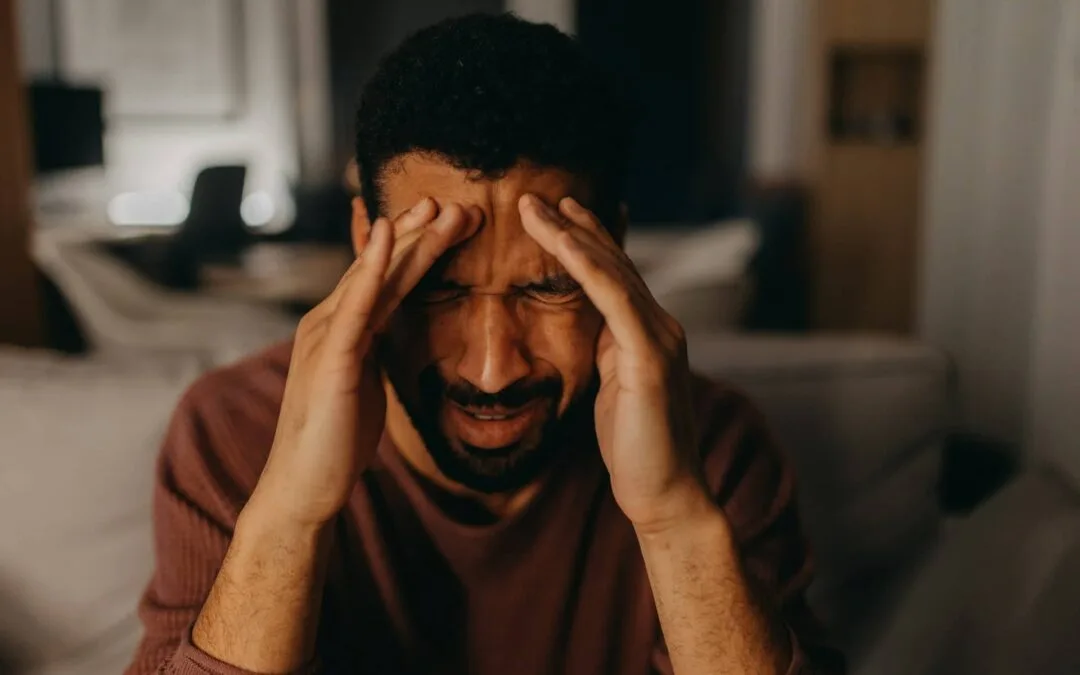Can we really help heal a damaged brain and reduce the anxiety and depression that often come with it? Some experts believe ibogaine for Traumatic Brain Injury (TBI) might hold the answer.
What is a Traumatic Brain Injury (TBI)?
A TBI happens when someone takes a hard hit to the head—think car accidents, sports injuries, or military combat. This impact can damage the brain, causing issues with thinking, emotions, or even physical movement. Right now, treatments mostly focus on managing symptoms, not actually fixing the brain. But researchers are exploring the potential of ibogaine, a natural plant substance, to heal the brain after a TBI.
What is Ibogaine?
Ibogaine is derived from the roots of a plant called *Tabernanthe iboga*, which grows in Central and West Africa. People there have used it for spiritual and healing ceremonies for centuries. More recently, ibogaine has been studied for its ability to help people break free from opioid addiction. Now, scientists are curious about how it might also help with brain issues like TBI.
How Does Ibogaine Work?
Ibogaine interacts with key brain systems related to mood, memory, and learning. When ingested, it’s converted into a compound called noribogaine, which stays active in the brain for a long time. This long-lasting effect might be helpful for brain injuries since the brain usually needs extended time to recover.
Why is TBI So Hard to Treat?
After a TBI, the initial damage is only part of the problem. The brain then faces more harm from inflammation and oxidative stress (a harmful chemical reaction), which can make symptoms worse and cause long-term issues like memory loss or mood swings. Most current treatments focus on managing symptoms, not on repairing the brain itself. This is where ibogaine’s potential comes in—it could actually help the brain recover.
How Inflammation and Oxidative Stress Make Things Worse
Inflammation is a healing signal from the body, but in the brain, it can lead to more damage. Oxidative stress produces harmful molecules that can hurt brain cells. Scientists think ibogaine might reduce both inflammation and oxidative stress, possibly helping protect the brain.
How Could Ibogaine Help People with TBI?
Although more research is needed, early studies and anecdotal evidence suggest ibogaine could help TBI patients in several ways:
- Encouraging Brain Cell Growth and New Connections
Ibogaine might help the brain grow new cells and form new connections. Some studies show that it increases brain-derived neurotrophic factor (BDNF), a protein that supports cell growth and connection-building—key for recovering from a TBI. - Reducing Inflammation
Since inflammation can cause further brain damage, reducing it might give TBI patients a better chance at recovery. Ibogaine could potentially limit this damaging response. - Boosting Mood and Cognitive Function
People with TBI often struggle with depression, anxiety, and memory problems. Ibogaine influences the serotonin and dopamine systems, which play roles in mood and thinking. By stabilizing these systems, ibogaine might help patients feel better emotionally and think more clearly, aiding their overall recovery.
What Does the Research Say About Ibogaine and TBI?
While there’s still much to learn, some early findings are encouraging:
- TBI Patients’ Experiences
Some TBI patients who tried ibogaine at clinics outside the U.S. report feeling better overall, with improvements in mood and mental clarity. Though promising, these personal stories aren’t enough to prove that ibogaine works—we need more scientific research. - Animal Studies
In animal tests, ibogaine has reduced brain inflammation, supported brain cell growth, and improved cognitive function after injury. For example, rats treated with ibogaine showed better memory and fewer harmful brain chemicals. However, more research is needed to confirm these effects in humans.
Risks and Concerns
Ibogaine isn’t without risks. It’s a powerful psychoactive substance, meaning it can cause intense hallucinations and emotional reactions. It can also be dangerous for people with heart conditions. Because of these risks, ibogaine treatment requires strict medical supervision.
And now, Stanford Medicine researchers have discovered that the plant-based psychoactive drug ibogaine, when combined with magnesium to protect the heart, safely and effectively reduces PTSD, anxiety and depression and improves functioning in veterans with TBI.
Legal Status and Availability
Ibogaine is illegal in many countries, including the United States, where it’s classified as a Schedule I drug—considered dangerous with no accepted medical use. However, it’s available in some countries like Mexico and Canada, where it’s primarily used for addiction treatment. If further research supports its use for TBI, there may be legal changes to make it more widely accessible.
What’s Next for Ibogaine and TBI Treatment?
Ibogaine for Traumatic Brain Injury shows potential as a new way to help people with TBI. Its ability to reduce inflammation, promote brain healing, and improve mood could make it a game-changer. But for now, most of the evidence is based on early research and personal experiences. More studies are needed to fully understand its safety and effectiveness. If these studies succeed, ibogaine could become an important tool in TBI recovery, offering hope to those dealing with the long-term effects of brain injuries.

